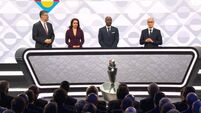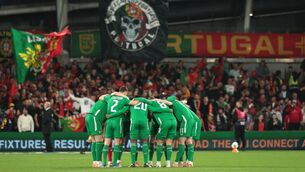Trap meets obvious end

Almost certainly for Ireland’s World Cup hopes, barring the kind of transformation this performance just never offered any encouragement of.
That is the starkest and most damning aspect of all of this — and why this regime has likely run its course. On a night when Giovanni Trapattoni’s side hoped to break new ground by finally winning a key qualifier, they succumbed to old flaws and lost the game as well as any hold on a play-off place.














